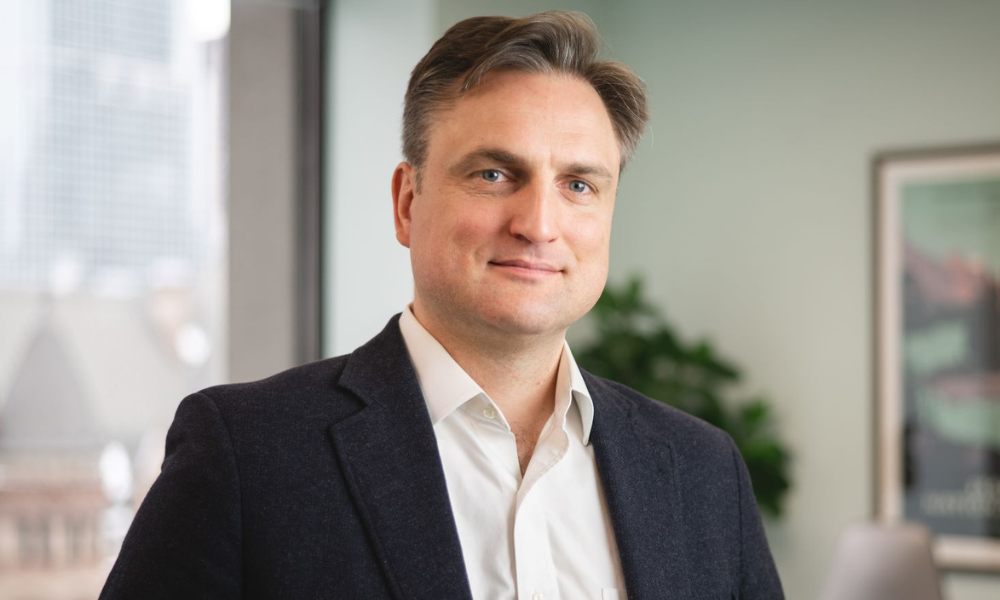They have options: ask for a pay increase, find a new job, or reduce expectations and expenses

Given rising interest rates and inflation, recent surveys say millennials are worried about how to meet daily expenses, let alone save for a house or retirement, but one asset manager says there are ways that advisors can help them do that.
“When you’re younger, you really need to have some discipline about what you’re spending your money on, and it can be tough,” Myron Genyk, CEO and co-founder of Evermore Capital Inc., told Wealth Professional.
“You can’t be too frivolous. Not buying lattes is such a cliché, but now there are half a dozen streaming service that each cost 20 bucks a month. On top of that, you have crazy cell phone plans. The amount we spend on telecommunications and entertainment is much more than when we were younger. I think that’s crept up as a proportion of younger people’s budget.”
Genyk noted there’s a five-step process that advisors can help younger clients address things like that. First, advisors need to help them take stock of their financial situation – their net worth, personal balance sheet, bank accounts, pensions, real estate, and liabilities, including everything from mortgages and student debt to outstanding credit card balances. Advisors can then help them set a budget to cover household spending, debt repayment, retirement funds, and other expenses.
Advisors can next help younger clients determine their financial goals – whether that’s paying off high-interest debt, such as credit cards, saving for retirement, or paying for children’s tuitions.
Then, they can help their clients create a plan for how much they’re going to save and invest, including RRSP and TFSA contributions, and start implementing it to ensure they meet their goals.
Finally, they should review their plan once a year to see whether they still have the same goals or whether their budget has changed, and anything needs to be readjusted.
Going through this process, millennials may discover their goals and resources don’t align – but they can still meet their goals with some work or other adjustments.
“When you’re younger, you may have to make some sacrifices. You can’t have everything you want because you just can’t afford it. So, people should make a conscious effort to figure out how much they want to save for a down payment every month,” he said, sharing how to save for a house.
“For us, it was $3,000 a month, so we did everything we could to hit that $3,000 mark. But it came at a cost. We didn’t have cable. We couldn’t go out with friends every time there was a get together, so we did that selectively. We lived in an apartment that was affordable. So, we were always really conscious about our budget and making sure that we were saving and meeting our goals.
“That can come with a certain element of personal sacrifice. But, when you look back on those years, you feel good about them. Yes, it can be uncomfortable, but it’s the right thing to do.”
Genyk said there are other ways that advisors can encourage clients to make adjustments to better reach their goals, too.
Besides trimming on the expense side, More Canadians may find themselves following the European model and renting more than buying a home, and he said, “there’s no shame in renting”.
Millennials can seek to increase their income by asking their bosses for a cost-of-living inflation increase to their salaries, which Genyk said many employers now are expecting. They could also find a better-paying job since employers are searching for good talent in this tight labour market.
Advisors can also encourage their younger clients to start saving in their 20s and 30s, because they’ll then have 40 years for their money to compound. Genyk figured whatever they can contribute will double within a decade, which will help them fund their goals as they age. Those who start early can also use stocks more than bonds to grow their wealth, and turn to the safer bonds in later years.
If clients – even older ones who may have paid off their mortgage or launched adult children – end up with more disposable income, they can also beware of the temptation to spend more in a “lifestyle” creep, and put most of the extra in investments to buffer their retirement.
That goes along with his warning that parents should encourage millennial children to be financially independent rather than continuing to treat their parents like ATMs. That can start with finding a job in high school, and help them learn to survive on their own while meeting their financial goals, gaining their own sense of accomplishment as they seek to reach their goals in today’s economy.
Ukrainian Donation Update
Genyk had also promised, earlier this year, to donate the first full three months of revenue from his Evermore Retirement ETFs, Canada’s first target-date ETFs, to the Canadian-Ukraine Foundation. It is providing humanitarian support – such as bedding, food, and medical supplies and support – to Ukrainians still in Ukraine and those who’ve taken refuge in bordering countries. The foundation now is supporting displaced Ukrainians in Canada, as well. Although Evermore is a start-up, it has sent $9,300 to help those from Genyk’s ancestral homeland.



